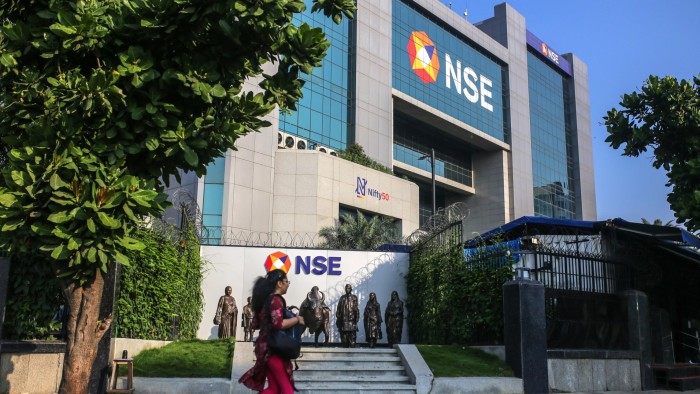Unlock the Editor’s Digest for free
Roula Khalaf, Editor of the FT, selects her favourite stories in this weekly newsletter.
India is gearing up for a torrent of mega listings this year that could propel the value of initial public offerings beyond 2024’s blockbuster performance, even as the country’s economy weakens and currency comes under increasing pressure.
At least seven companies are preparing to raise at least $1bn each this year, according to investment bankers working on the listings. They include domestic names such as online brokerage Groww, fintech company Pine Labs, which has PayPal as an investor, and SoftBank-backed eyewear brand Lenskart. South Korea’s LG is also expected to list its Indian arm.
This year’s crop compares with last year’s three $1bn-plus offerings, which included Hyundai’s listing of its local business, as well as the debut of takeaway and grocery delivery company Swiggy. Last year, India topped Asian IPO rankings and came in only below the US globally.
The total equity fundraising through public flotations could surpass $23bn in 2025, according to Indian brokerage and asset management group Motilal Oswal, up from $19.6bn raised in 336 IPOs last year.
Already 34 companies have been approved to raise $4.8bn this year, and another 55 are awaiting clearance to raise up to $11.4bn, it said, citing data available with the capital markets regulator.
“There’s a strong pipeline,” said Sonia Dasgupta, chief executive of the investment banking division at Mumbai-based JM Financial.
The joker in the pack, which could also be the largest IPO, would be Reliance Jio, the telecommunications business owned by Mukesh Ambani — Asia’s richest man. While Ambani and his conglomerate Reliance Industries have yet to signal a timeline for Jio’s public offering, many investment bankers say it could happen in the second half of the year. Reliance did not respond to a request for comment.
Corporations and investors have been encouraged by largely strong debuts. In a recent study of 162 IPOs in 2024, Bank of Baroda analysts noted that the price of more than 82 per cent rose after listing.
Companies have been eager to take advantage of India’s heightened equity valuations, driven by domestic fund flows as millions of households increasingly invest their savings in local markets.
“India is among the most expensive markets,” said Kunal Vora, head of equity research at BNP Paribas, adding that share price-to-earnings multiples were around 20 in India, compared with averages of up to 14 in most other markets.
Local capital had “become the bedrock” for the Indian markets, he said, with domestic institutional inflows surpassing foreign funds for a fourth consecutive year in 2024. The number of Indians with accounts allowing them to invest in mutual funds has more than quadrupled from around 40mn in 2020 to over 180mn last year.
The surge in domestic investor interest comes as foreign investors have withdrawn more than $30bn since October, balking at the relative expense of the country’s stocks.
The Nifty 100 index of India’s top stocks has retreated 12 per cent since its September peak after corporations posted a batch of weak earnings amid a broad economic slowdown. While India’s growth is still the fastest among large economies, GDP was up just 5.4 per cent year-on-year in the three months to September, the lowest rate in nearly two years.
The rupee has also come under renewed pressure against a strong dollar as President Donald Trump took office in the US.
“It’s an emotional cycle right now,” said Nitin Bhasin, head of institutional equities at Ambit Capital in Mumbai, who said many Indian business founders, known locally as “promoters”, might wait to see if valuations edge up again. “I’m already noticing in my one-on-one conversations that many promoters, if not all, are holding back the urgency in which they wanted to launch the IPO — they are happy to delay it by a month or two.”
Some major debuts have also been lacklustre, with Hyundai Motor India down 8.7 per cent since its October IPO.
And concerns have been raised about the quality of a spate of smaller companies that have listed over the past year, as well as the use of markets by big foreign companies to take money out of the country rather than reinvest it in India.
Many Indian business owners have also been “taking that money home”, said another Mumbai banker. “It appears that Indian stock markets are being used by management or promoters as cash-withdrawing machines.”
Read the full article here




